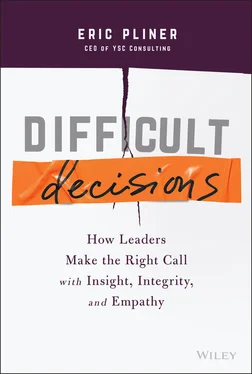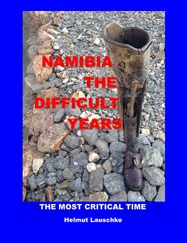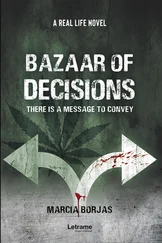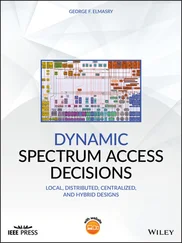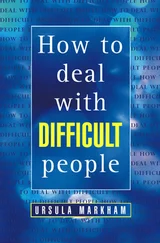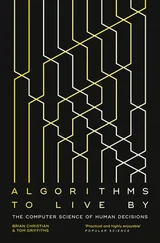Right or wrong, whatever this approach represents, at least it's by design and not by accident.
Hopefully, you will leave this reading having reflected on where you've come from, who and where you are today, and how you got here. Hopefully, you will have considered where you want to go next, both as an individual and as a leader, and how you'd like to get there. Hopefully, you will design a plan and approach to complex personal and professional challenges with intent, enabling you to make tough choices with insight, integrity, and empathy. And hopefully, you will get to do so well ahead of the next round of pain inherent in making the most difficult leadership decisions: the ones that highlight our conflicts, our contradictions, and our hypocrisies, yes—but also our humanity and our ability to shape the future.
You're going to want to grab a pen and some paper. Some of this might hurt a little bit. At the very least, maybe you'll be more ready for whatever is waiting for you tomorrow. If not, well, don't worry. This book is probably wrong anyway.
Eric Pliner
September 2021
1 1Paul Walker and Terry Lovat, “You Say Morals, I Say Ethics—What's the Difference?” The Conversation, September 18, 2014. https://theconversation.com/you-say-morals-i-say-ethics-whats-the-difference-30913.
Life is pain, Highness. Anyone who says differently is selling something.
—The Man in Black in The Princess Bride by William Goldman
CHAPTER 1 Difficult Decisions
I had been in the role of chief executive officer of YSC Consulting, a 30-year-old, global leadership strategy firm, for about two years when one of our client teams approached me with a dilemma.
Sixteen months after we felt the first economic effects of COVID-19, our financial performance had returned successfully to its pre-pandemic levels. Still, like many businesses around the world, we remained only a few months removed from worrying whether our boutique consultancy would survive the economic and health crises imposed by the pandemic. The climb back to strong earnings had been arduous and exhausting, and our attention was heightened to every possible opportunity to maintain our recovery and growth.
Everyone was pleased, then, when one of our longstanding partners moved to a new company – this time, a defense contractor and manufacturer – and called on our client team for support. Our contact's new organization needed help shaping their approaches to leadership succession and to diversity, equity, and inclusion, the confluence of which represented one of our firm's sweet spots. The client anticipated a sizable contract, enough to close a gap in forecast performance for the region, and knew that our capabilities were a strong match for the organization's need. Our team went to work immediately, using their knowledge of the client, the industry, and the current moment to craft a custom solution that matched the caller's circumstances precisely – exactly what any great consulting firm would do.
But when Cara, a member of our administrative team, proofread the proposal, she was uneasy. She'd used a superior set of research skills to dig into the gap between the company's carefully curated public image and less savory activities that independent media outlets had reported more recently. Cara was concerned that we were compromising our values in service of the potential opportunity.
We were no strangers to working with complex or controversial industries; our client portfolio included tobacco companies, oil and gas companies with known histories of environmental damage, pharmaceutical manufacturers sued for artificially raising prices of drugs to treat rare disease, low-end retailers accused of exploiting rural communities, financial services organizations that had settled extensive claims resulting from the sale of mortgage-backed securities, and plenty of others. As leadership strategists, our work helps organizations to design their desired leadership styles, interactions and dynamics, and organizational cultures with intent, rather than leaving those critical human elements to default. Incorporating thoughtfully designed values, expectations of sustainability, awareness of community and environmental impact, and deep understanding of the constellation of organizational stakeholders is at the heart of what we do, and so we embrace opportunities to help leaders, teams, and organizations to make changes to their strategies or operations to lead with integrity, pride, and resolve. These particularly challenging scenarios were among those where our work was most impactful and most rewarding. But this one felt different.
Cara's discomfort was on my mind, but I'd heard plenty of discomfort before. We'd made the collective decision to encourage our colleagues to opt out of participating in any project or account with which they felt personally misaligned, and that practice had worked successfully to date, without compromise to the business. She wasn't asking to step away from the project, though; she was asking that the firm make a choice to turn down the opportunity and the partnership entirely.
We had to weigh another element, one that reflected our ethical context. Without a doubt, Cara's thinking was informed by an experience in our professional community that had brought us closer together. In the fall of 2019, we'd licensed the TED platform for use at an internal, all-company meeting. Speaker after speaker blended original research, cutting-edge ideas, and personal experiences to spread ideas about leadership, business, and our firm with passion and power. As one well-loved colleague – a particularly powerful speaker – shared her childhood experience as a refugee from civil war in vivid detail, the room hardly moved. Over the subsequent days, the business worked together to turn our co-workers' rich ideas and personal narratives into decisions about organizational practices and our desired future. Deciding that we wouldn't work with organizations that manufactured and/or sold weapons of war was relatively straightforward; we had few if any clients that met those criteria anyway, and our colleague's message was undeniable.
On a personal level, I didn't take that stance lightly. While I hold a degree in peace and justice studies, my father was a career civil servant for branches of the US military prior to joining a private-sector firm that contracted with those same agencies. We'd had a version of these discussions and debates around our family dinner table for decades, often agreeing to accept that our conversations were unlikely to be closed or resolved in any meaningful way.
Nevertheless, the firm had held this decision with real pride and shared it publicly, fully considering the possibility that we might countenance a version of this exact dilemma in the future: the opportunity to deliver meaningful work to people who wanted it, needed it, asked for it, and were prepared to pay for it, but with whom we could not align our values. We'd opted to employ what some call an “abundance mindset,” 1 the belief that ample opportunity in the marketplace would allow us to readily find work that we wanted to deliver, in line with our values and cultural priorities. Essentially, we were confident that we'd never need to take on work that hurt in the ways that we'd identified.
What we hadn't accounted for, though, was an unanticipated and drastic shift in context that created a conflict between our morality and our role responsibilities as leaders and service providers. The world had changed since we'd determined that we could turn away prospective revenue. Neither our survival as a firm nor our ability to fully employ our people – many of whom relied on us for health care for themselves and their families – were guaranteed. Perhaps they never had been, but years of strong performance had left these existential questions well out of sight. But after a year where nearly every organization in our industry had laid off employees, reduced compensation, restricted hiring, closed offices, defaulted on financial obligations, or taken other measures to save cost in exchange for protecting their organizations and the majority of their people, turning down a large contract with guaranteed revenue – thereby potentially putting some of our people, their livelihood, and their families at risk – seemed irresponsible, if not downright unethical.
Читать дальше
